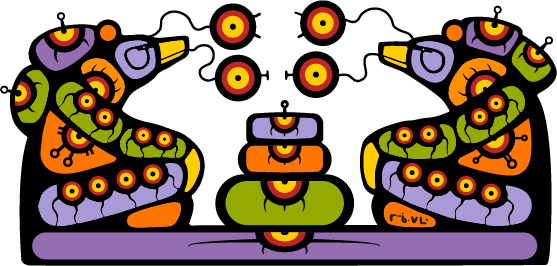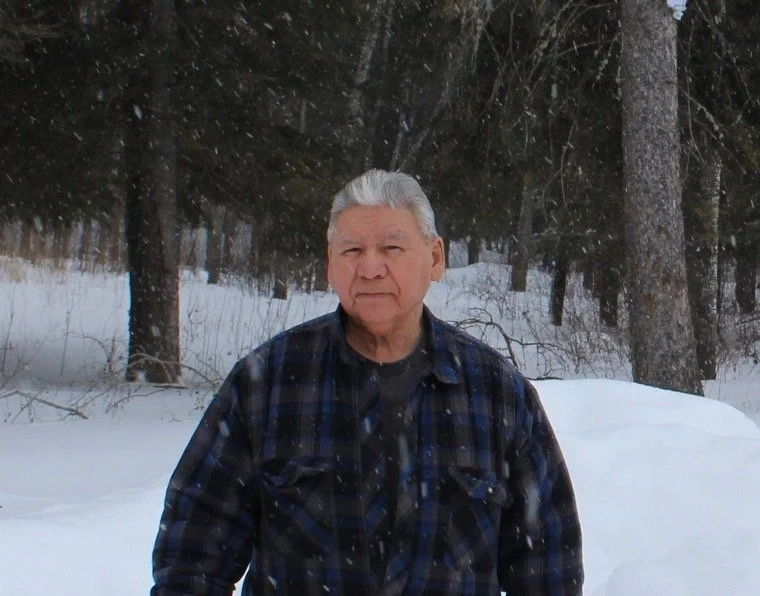Michael Ernest
Air Date: November 30, 2022
Summary
Podcast host Christine Fiddler speaks with Michael Ernest on traditional Cree practices and medicines. They also discuss Cree values and worldviews and why this is important to carry on.
-
That’s what I’m talking about, Cree when they negotiated the treaties, they were written in a way that they were meant not to be broken. As long as the sun shines and the rivers flow. How do you say it in Cree, (English-the grass is green). I have a hard time to say some things [in Cree]. The treaties were meant not be broken by anyone. That’s what they mean when say (English-a forever treaty, “as long as the sun shines, the rivers flow, the grass is green) But to say it in Cree for us, it’s hard. Because we never lived on a reserve because of (English-residential school) we attended. And 1984, I wonder how a Cree was able to make the treaties when they didn’t even know how to write or read. Our ancestors that up above, probably helped them, I used to think.
That’s the only way I can see it. That’s what I follow too, our traditions and prayers, the traditional beliefs. How to follow the native life, that I was taught by an old man. Our Elders were powerful, they were able to do lots. They would make medicines. They had beliefs about life. But it was hard because the white man put up laws that First Nations people had to follow in life. That’s what a person thinks about today with everything that’s going on, it’s hard. A longtime ago, the old people that have passed away now, I used sit with them when I was young and they would tell me about the hard times that are coming in the future. And that’s what we’re seeing now, I see it right now. I can’t say much because my Cree is limited. I know how to speak Cree but there’s certain words I don’t know how to pronounce.
These are the medicines that I’m talking about. My grandmother had taught us how to make medicines. My mother, my grandma, and me. We know how to make them. I don’t go around telling people that I know how to make these medicines. But I also don’t sell them. A person who comes see me has to offer me tobacco, just like what you’re doing now to ask me to talk,coming to get knowledge about something. That’s what you do first, give tobacco and cloth. Or a blanket. That’s what a person does when they come get knowledge, songs, medicine, or sweatlodge. It’s the same thing. Or if you want to learn about traditions, or to be a helper in ceremonies, sweatlodge, sundance, all kinds of different things. You earn that right to have that chicken dance. The helpers are taught the way to do it and they earn that right to sing. And they’re taught the medicines. I used to go with one of my grandmas to go pick medicines. And she would tell me how to make it. The same with people today, they can earn that right to learn to help themselves. Like the helpers, the sweatlodge, the songs I share with young people. And how to handle a pipe. It’s hard for a young person because they don’t know the Cree language and to follow the traditional way.
But they have to try. Just like how you want to know about the Cree language. There’s others that know more of the Cree language and those are the people that you should see. There’s a lot of people that you need to go see so that you don’t lose the Cree language. The First Nation’s way of life, everything. To try to remember. Just like us, we’re old. You’d never think you’d seethe time you would reach that age where a person would be old. But we’re all going to be there.You got to know to never lose that. Believe, listen, honesty, and faith. All the good values of life.People need to understand the Cree way of life. I cannot tell a person how to make medicine,that’s what I see, he or she has to earn that right. Or to be a helper to help the Elder. For example,a person goes help make medicines and earns the right to do it. Just like me when I make medicine, nobody helps me. I sit alone here and make the medicine, where are those young people. They choose to drink, smoke weed, and do bad stuff. You guys see that, a person is alone. Just like now, my person is not with me. I’m by myself. I can’t say much more, that’s about all. The young people have to not lose our beliefs. A long time ago, our women and men were very powerful. I seen it, how it was. My grandma used to go into a sweat and right away a grandfather would come and they would talk, they knew each other. That’s what we need to bring back, not to lose it, our prayers. We got to learn to do stuff, the Cree ways of knowing.I don’t have much more to say. I can’t show you how to make medicines. You did do the right thing for me to talk to you and tell you. But I can’t give them to you, you have to earn them. -
ekwana kiytaman - that’s what I’m talking about
moya kinponatikawiyak - they were meant not to be broken by anyone
yakwam oci - that is what they mean omosomowak - our ancestors/Elder
ketiyayak - the old people
miciht keekway -t hey were able todo a lot
ki mama - my mother
kohkom - my grandmother
ekwa niya - and myself
pohko pi-wapimit eyseenoo - a person who comes to see me
steemow pi meeyin - give tobacco
oskapewcik - the helpers of ceremonies
moosakinaman maskikiya - I used to go pick medicines with her
ospwakan - a pipe
yakwama pohkpo - that’s about all
nehiyaw keekway - the Cree ways of knowing.
SERIES
Sîkîp Sâkahikanihk Keyteyayak Âcimowina
HOST & PRODUCER
Christine Fiddler
Campbell Stevenson
Episode Guest
Michael Ernest was born on February 3, 1952 at Ministikwan Lake, Saskatchewan. He was raised by his mother and father Emma and Bruno Ernest, then sent to Beauval Indian Residential School at 7 years old. He married Violet Lasas in 1986 and they were together for 45 years until she passed away in 2021. He has worked in various places throughout his lifetime: in the Uranium Mine, the Meadow Lake Pulp Mill, the Prince Albert penitentiary as a Cultural Liason, the oil fields, and as a mechanic in Lloydminster. He is now retired and resides on the Waterhen Lake First Nation where he maintains Cree cultural practices such as the sweat lodges and chicken dance. He wants to get into gardening and learn how to prepare traditional herbal medicines for such ailments as cancer, heart ailments, diabetes, and kidney disease.









Podcast host Christine Fiddler interviews her final Cree Waterhen elder, Mary Anne Martel.